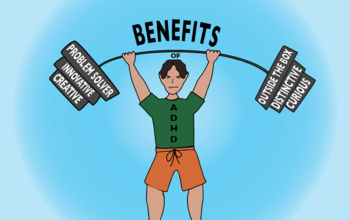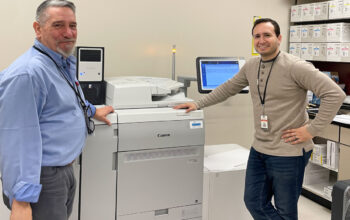Emilia Savini, Feautres Editor
@ESaviniCourant
While scrolling through the newsfeed on Facebook, one is likely to come across funny clips from Vine, embarrassing posts from relatives, or the occasional ALS Ice Bucket Challenge. Among the increasingly varied posts present on social media sites, one may come across a post from someone “coming out of the closet”.
A couple of students at NCHS have chosen to utilize the communal environment of Facebook to come out about their sexuality to their Facebook friends. While these posts may not be as common as updated profile pictures, they are monumental steps in a life long journey for LGBTQ students at NCHS.
Sophomore *Mark was one of a few students who utilized Facebook to communicate a message he was tired of repeating. “I decided to come out through social media because I got tired of telling people about my sexuality in person,” he said. “There came a point where telling multiple people everyday became a bit of a hassle, so to make things easier I just put it online.”
Similarly, sophomore *Jennifer said that the instantaneous nature of social media facilitated the process of coming out. “I decided to come out on social media because I couldn’t think of a better way to get the message across instantly,” *Jennifer said. “I was tired of hiding who I was and since social media is so popular among my peers, I found it easy to inform people this way.”
Kids in Crisis Social Worker Edward Milton encourages student’s openness, but hopes that their decisions are well thought out. “If someone decides to come out on social media, I hope that they planned ahead and that they were purposeful,” Mr. Milton said. “I also hope that they recognized the resources available to them; to support them when they face either positive or negative reactions from people online.”
*Mark was influenced in his decision to come out on Facebook by an LGBTQ group that he is involved in. “ I was motivated by a strong, supportive group of friends. I’m part of an all-inclusive LGBTQ group, and the day I posted online I had gone to my first meeting for that group,” he said. “It gave me the support I needed to make my sexuality common knowledge on the Internet.”
Likewise, *Jennifer found motivation from a close friend and was reassured by the positive feedback she received. “I was motivated by another girl my age who came out on Facebook not too long before I did,” she said. “When I saw the positive reactions she got, I thought that it would be a good way to come out and feel comfortable about who I was, instead of hiding it.”
*Mark found that the inability to see the reader’s reaction online was a setback to publicizing his sexuality on social media. “Coming out on Facebook is a lot more instant than telling someone in person. Everyone knows a lot faster,” he said. “Also, when you’re on the Internet, it’s a lot more impersonal; you don’t get to see each individual person’s reaction or gauge how they really feel.”
Mr.Milton believes that perspective on homosexuality is developing globally and on an individual level. “It does make me very uncomfortable knowing that there are so many opinions about the LGBTQ community,” he said. “I think that law-wise and community-support wise we are growing with how people deal with LGBTQ, and we have not really mastered it yet.”
Despite her concern about receiving negative comments on Facebook, *Jennifer received some very positive reactions from her post. “After I made my post, I was invited to several Facebook groups and I joined a club at the school called Gay-Straight Alliance,” she said. “It’s easily one of my favorite clubs because everyone there is so nice. I didn’t get a single negative remark from anyone there and I couldn’t have felt better.”
*Mark also recognized the benefits from posting on Facebook, and said he has seen a monumental change in his day-to-day life. “People have been totally accepting with my sexuality, and I’ve finally had the courage to branch out and do what I want,” Mark said. “I honestly started coming out in person; I’d tell the truth to anyone who asked, and that’s when my life started to change.”
Given the potential backlash students may face online as well as in person, Mr. Milton advocates the variety of resources for students within NCHS. “We have a huge support network that I am a part of, and we want to be as accessible as possible,” Mr.Milton said. “The school cares so much about everyone here that they have invited me from Kids in Crisis, which is not affiliated with the school, as an additional support. This school already has an amazing team of supporters, so I want kids to know that there are people out there that they can talk to.”
*Mark said that he would advise LGBTQ students to begin the process of coming out in person. “I think that people should definitely come out in person first, because it shows the people close to you that you care and that you trust them,” he said.
Having worked in Kids in Crisis, Mr. Milton knows the benefits of a solid support system firsthand and encourages kids to take advantage of the resources around them. “Kids In Crisis is here year round to help and support you,” he said. “I think kids need to recognize that when they do come out, everyone will not respond in the way they may have expected and they must understand where they are coming from, anticipate different responses, and have a support network in place to manage that.”
*Jennifer said that she hopes her fellow LGBTQ students learn more about themselves throughout the process. “My advice is that you should try to come to terms with who you are before you come out officially; talk to a friend, or someone you think would understand,” she said. “Before you come out you should know that some people are unfriendly and they may judge you, but ignore them because their opinion of you is irrelevant.”
Although Mr. Milton promotes students expressing themselves, he emphasizes that social media has its pros and cons. “Having not grown up with the internet, it is hard to share the same perspective as kids. They all see it totally different than adults, and I have a lot of concerns about it because I deal with the kids who have been hurt online,” he said. “At the same time, I also know that kids are connecting with all the supports we have out there because of the internet and social media. It is a double edged sword for sure.”
*Mark believes that important aspects of coming out on social media are expressing individuality and gaining self respect. “Coming out in person requires you to build trust up in each specific person, but posting on social media is abrupt. It deconstructs the idea that coming out needs to be some huge thing, which I like,” he said. “It should be an easy thing to do because one’s sexuality or gender identity does not define them as a person.”
*all names have been changed
GLSEN offers programs for LGBTQ Youth
The Gay-Lesbian-Straight Education Network, also known as GLSEN is a national organization for students, teachers and parents, with the goal to positively support the LGBTQ community and create a more peaceful coexistence between the LGBTQ and straight community. Mr.Milton works closely with GLSEN and admires the work they do for the LGBTQ community. “We work with GLSEN who is apart of Triangle Community Center located in Norwalk, and GLSEN acts as our national model,” he said. “They also have great statistics to inform people about issues concerning the LGBTQ community.”
Not only does GLSEN focus on raising awareness, this program also provides various support groups for LGBTQ youth and adults. Mr.Milton understands that some kids are not comfortable discussing these issues within the school, so he encourages them to participate in groups provided by GLSEN. “If kids do not feel comfortable seeking support within the school, I must stress that they can come to me as the person who is the GSA advisor, and we can certainly connect you with supports that are not school-affiliated like the Outspoken program,” Mr.Milton said.
One of the youth groups affiliated with GLSEN is called Outspoken, which meets on Sunday evenings from 4 PM to 6 PM. This group gives a chance for LBGTQ teens to discuss topics such as family, school, friendships, and most commonly, fitting into the gay and straight communities. Mr.Milton has found that students who have attended this program have enjoyed it thoroughly and he encourages more students to considering joining a group like Outspoken. “Outspoken is a very positive group and I know that the kids who have attended this group from New Canaan have really liked it and felt welcome there,” he said.
Statistics from GLSEN
- 55.5% of LGBT students feel unsafe at school because of their sexual orientation, and 37.8% because of their gender expression.
- 71.4% of LGBT students heard “gay” used in a negative way (e.g., “that’s so gay”) frequently or often at school, and 90.8% reported that they felt distressed because of this language.
- 51.4% of students reported hearing homophobic remarks from their teachers or other school staff, and
- 74.1% of LGBT students were verbally harassed (e.g., called names or threatened) in the past year because of their sexual orientation and 55.2% because of their gender expression.
- 49.0% of LGBT students experienced electronic harassment in the past year (e.g., via text messages or postings on Facebook), often known as cyberbullying.
- 61.6% of the students who did report an incident said that school staff did nothing in response.




